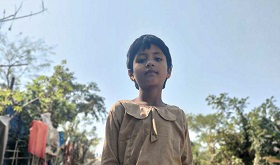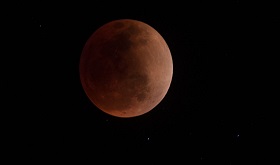Dania Akeel’s voice crackles through the intercom above the roar of the engine and the rush of wind through the windowless cabin of her rugged, black UTV, her head cradled in a crash helmet.
“We’re so fortunate,” Akeel tells CNN Game. ” I mean, take a look at this place; it’s so gorgeous.
The Saudi masterfully steers the vehicle along a winding dirt road past Joshua trees and rocks before blasting it across the dry sand past the rusting shell of an abandoned pickup truck.
“This is what we get paid to do, right?” Continues Akeel, 34, as she prepares for her second attempt at the infamous Dakar Rally, one of the world’s longest and most difficult endurance races, reflecting on her chosen field.
In a Can-Am Maverick X3 X RS Turbo RR, CNN is riding shotgun with one of the most remarkable stories in cross-country racing, about an hour north of Phoenix, Arizona.
The Jeddah-born athlete had never even tried this kind of racing before just over two years ago. Additionally, Akeel is from a nation where women have been restricted from driving on public roads since 2018.
The Dakar
The Paris-Dakar Rally was the original name for “The Dakar” in 1978. It ran yearly from France to Senegal until 2007 yet when the 2008 occasion was dropped because of safety concerns, the assembly was relocated across the Atlantic, and went through South America until 2020, when it moved once more, to Saudi Arabia.
The rally currently has five main vehicle categories: UTVs, quad bikes, motorcycles, trucks, and cars
Even before the world-famous rally came to her home country, Akeel had a strong interest in automobiles.
She tells CNN, “When I was younger, I had a lot of interest in cars.” Actually, it wasn’t just cars; anything I could drive, including bicycles, was the choice.
I just love movement, you know. I adore being outside. Her early years were spent experimenting with a wide range of transportation options. I just love how it felt to communicate with the machine and get it to move from point A to point B.
She elaborates, “I started driving things like quad bikes and go karts at a young age.” I drove dirt bikes with two wheels when I was a little older.
“These are just vehicles that would be in private homes, on a farm, or places like that, where I had access to these kinds of machines, and I would just use them for fun with my cousins and friends on the weekends,” says the person who owns the equipment.
When her family moved to the UK, where she attended high school and college, her interest in automobiles grew even more.
She recalls, “I was very fortunate to travel frequently with my parents.” We used to have a lot of fun going to England’s kart tracks.
The Opportunity to drive on public roads
When Akeel was 17 years old, the opportunity to drive on the road presented itself to her in the UK, which at the time was firmly closed to her at home. She seized the opportunity without delay and obtained her driving license.
She even admits that the opportunities to drive influenced her decision to attend Royal Holloway College, a picturesque college on the western edge of the English capital, for her undergraduate studies.
Akeel’s mind began to race when he made the switch to two wheels.
“At the point when I was 27, I got my bike permit, and that was loads of tomfoolery. As a result, the motorcycle began to point me toward the racing industry.
She moved to Dubai and began riding on the Dubai Autodromo racetrack after earning a master’s degree in international business from Hult University.
According to Akeel, “some of the racers encouraged me to join them, to race the in the national series.” They could see that I was truly enjoying the sport and having a good time.
I went to get the racing license tests and exams done, and then I got my license from the Saudi Motor Sports Federation. I got my start in racing that way.”
An accident was the literal catalyst for switching to cross-country racing.
Akeel fell while attending a 600cc Superstock event in Bahrain in February 2020 when she lost control of her bike.
“I had a “low side” fall, which is the lesser and easier fall because I fell onto the track on the side the bike was leaning toward.”
Akeel, who stands six feet and one inch tall, considers herself fortunate.
“I had a lot of luck. My spine and pelvis both had a few broken bones, but they were all fractures that could heal on their own. So, I thought that was a very fortunate outcome, and I was relieved and grateful.
Consciously Prepared
Akeel went back to Jeddah to recuperate because the Covid pandemic was beginning to cause widespread border closures and lockdowns at the time.
She began to consider the appeal of off-road and rally racing while resting, particularly in light of the fact that Saudi Arabia was hosting the Dakar Rally for the first time.
It’s a fantastic event. It spans the globe. She elaborates, “It’s a lot of fun and has a lot of people from all over the world coming in large numbers.”
Akeel began competing in the global rally series known as the FIA World Cup for Cross Country Bajas, which was inspired by the eponymous races held on Mexico’s Baja peninsula.
“(I needed) to become accustomed to being in various circumstances, different territory, which Dakar gives you, across 9,000 kilometers of Saudi Arabia and it’s very assorted,” she says.
So, when I went to the cross-country Baja World Cup, I had three rounds in Europe and two in the Middle East, and driving in each of those places was very different.
So, I discovered, for instance, that Italy was muddy and Hungary had a lot of gravel and water. In the Middle East, there were a lot of rocky, bumpy places with sand and dunes. As a result, my mind became more prepared for variety and prepared to engage with the unknown.
According to Akeel, one of the most important aspects of preparing for the Dakar is being prepared for the unexpected.
She explains, “You can be mentally well prepared if you have this mentality that anything can happen at any moment and you expect things to constantly evolve.”
Physically, things are a different story: I exercise regularly, eat well, and get enough sleep.
“I am entitled to be there,”
Akeel is aware that she could be viewed as a role model by her countrywomen in Saudi Arabia, where women have only recently been allowed to drive, but she is philosophical about her own path and what she might represent to others.
“I was extremely fortunate to get my permit when I was 17 and I had an early advantage on building that reaction time and those abilities and driving abilities,” she says.
“I think it’s important to watch other people do it because it shows you that you can get into the sport, no matter who you are.
I don’t remember thinking twice about how many women had done this when I joined the first race. Were they Saudi nationals? Not Saudi? Because the rules state that I can be there, I didn’t give it much thought.
I have every right to be there, you know. I have my permit. I’m welcome here. I have my automobile, gear, and helmet. I fulfill all of the requirements, as you know. I needed the full set of rights that come with being a part of the sport.
A costly error
Akeel finished eighth in her class in the 2022 Dakar in her first attempt, but she could have done even better.
As a first-timer, Akeel stated, “We were sixth (in the T3 class), which I was very happy with.” However, on the seventh day, I encountered a turbo issue, resulting in a slight decrease in power. I started to carry momentum through the turns and use the brakes less. But that means there’s more risk.
“You know, if you don’t stop doing what you’re doing, you’re gonna have a problem,” my co-driver stated. But I didn’t pay him any attention, and when I came around a corner, I was surprised by a rock. I slammed on the brakes quickly, and the impact broke the front of the car.
Akeel lost four hours and several places as a result of the error.
She admits, “I reacted in an emotional way, and I didn’t make the right decision.” The Dakar race forces you to examine yourself and your choices. After that, I did alter my driving style.
Providing women with a path
Major sponsors, such as Toyota and Can-Am, a Canadian off-road specialist, have found Akeel’s story compelling. Can-Am provided her with the crucial vehicle.
Anne-Marie LaBerge, Chief Marketing Officer at BRP, the company that owns Can-Am, of Akeel, stated, “Dania isn’t afraid to get in there and compete with the boys in a sport that is dominated by men.”
Similar to what Molly Taylor does in Australia, Cristina Gutierrez does in Spain, and Cory Weller does in the United States, she is paving the way for women and future generations of young women in Saudi Arabia.
“These are women paving the way for other women to push their boundaries and participate in the game, regardless of the rules,”
Akeel sees the challenges of Dakar as both a learning opportunity and primarily a fun experience.
She says, “Dakar makes me think of summer camp.” We wake up every day, put on our gear, and just drive for more than 400 kilometers. It has been the best two weeks.
“At the point when I get in the vehicle, it’s me and the co-driver and the vehicle and the track. That’s all. That is all that is known. There is nothing else.”


